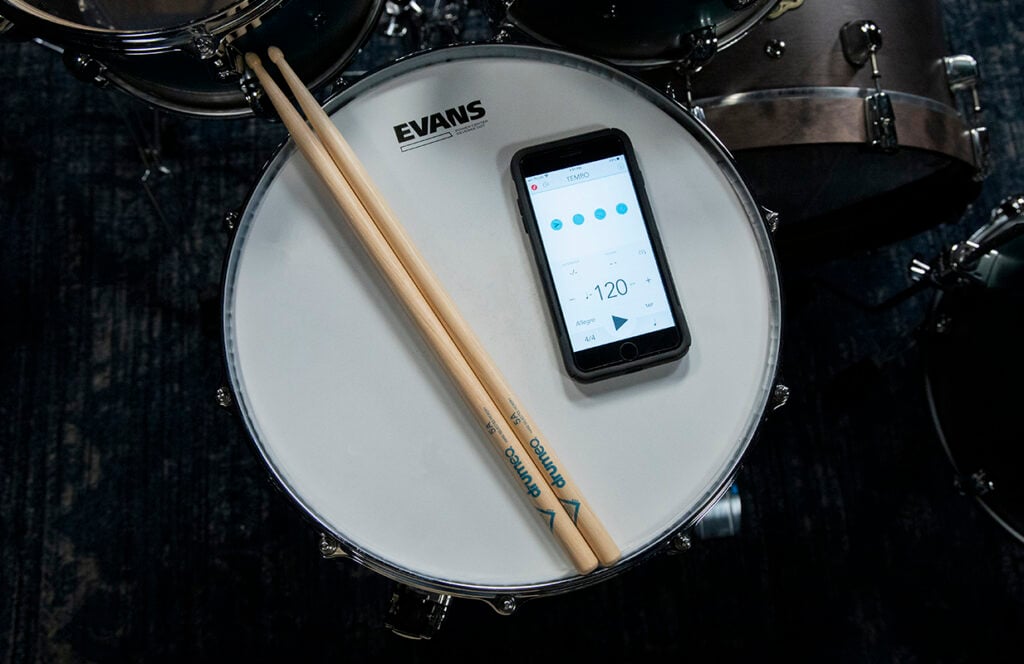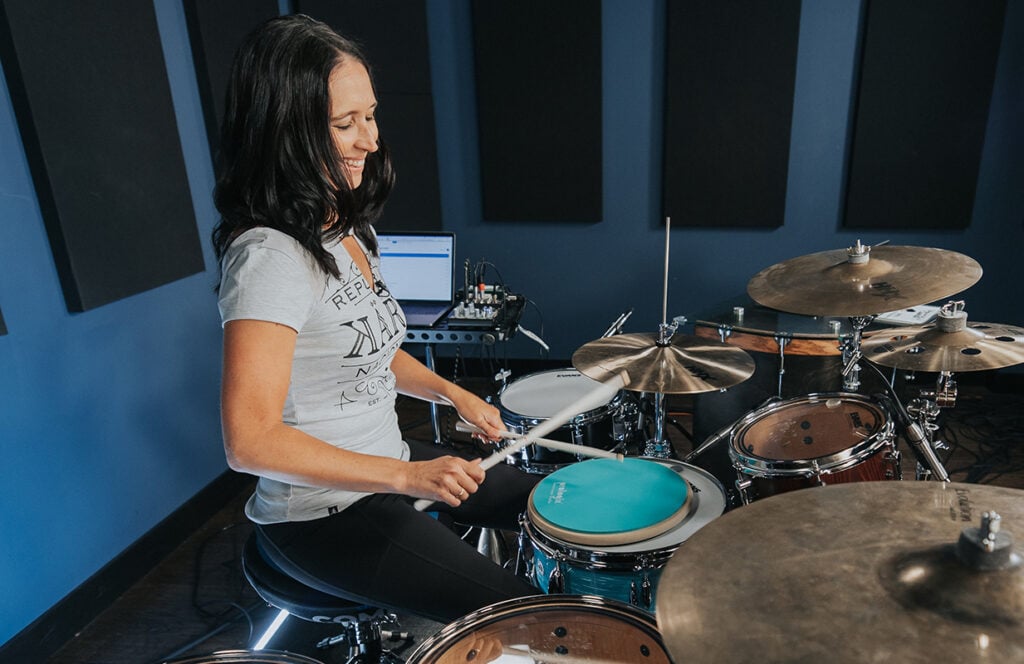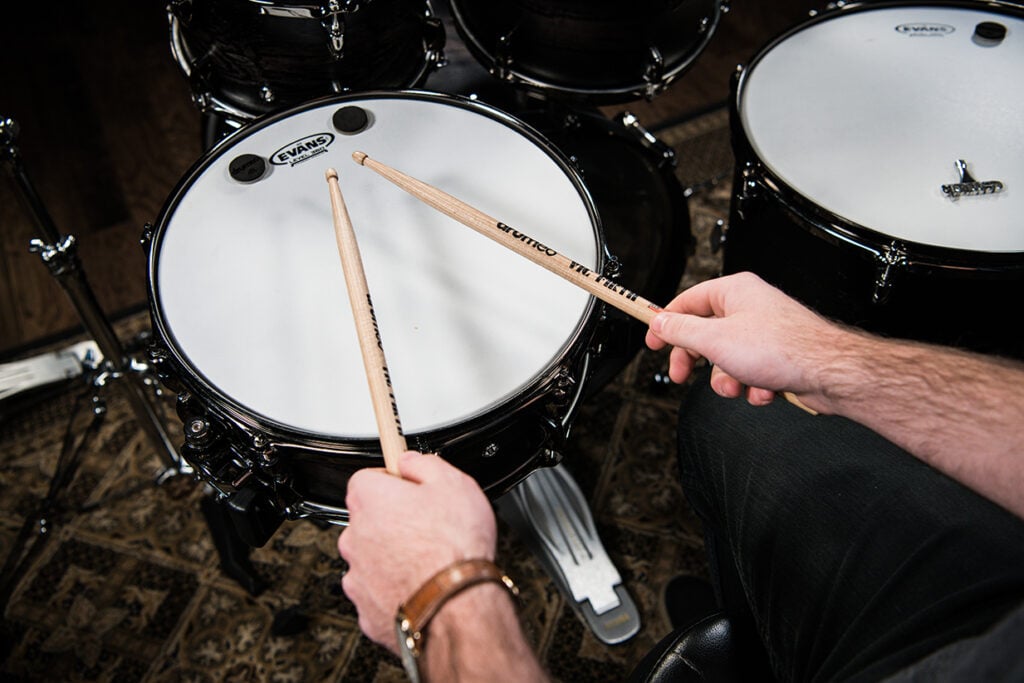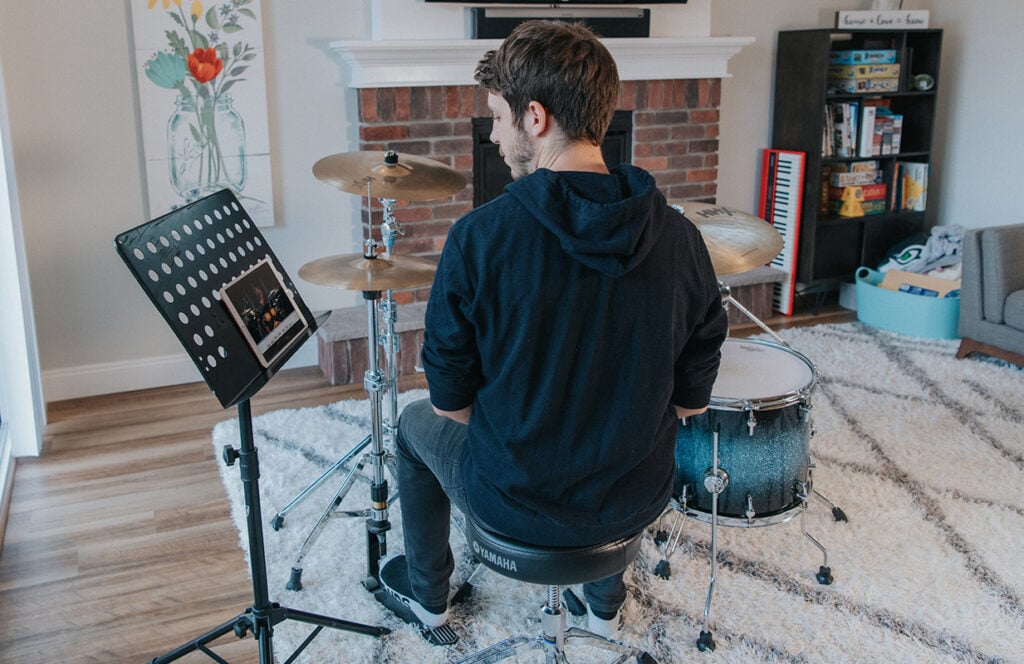The double ratamacue is a drum rudiment that builds on the single ratamacue. This pattern is typically played in 6/8 and sounds great in snare solos and creative drum fills.

A ratamacue’s pattern sounds just like its name. This is a ‘double ratamacue’ because you add a second drag to the beginning of the single ratamacue pattern.
Combine two drags with the single stroke four and play it as triplets in 6/8.
Here’s what the double ratamacue sounds like:
You can use this tool to practice along at the tempo that’s best for you (it’s the one Drumeo members use when practicing with the 3000+ play-along tracks inside our members area).
► Click here if you want to learn how to read drum music
While this might sound like something you’d hear marching drummers play on a snare drum, you could try incorporating it into rock fills and solos around the drum kit.
Work on the single stroke four and the drag before you learn this rudiment. Follow these tips to help you play ratamacues smoothly and consistently.

When you’re first learning how to play something, it’s fine to test it out without a metronome as you get used to the pattern. But you shouldn’t go click-free for long. The metronome will help you develop a better internal clock and show you exactly where the timing of your strokes is inconsistent (or where it’s right on the grid).
You can buy a physical metronome at a music store or download a metronome app online.

While it might be tempting to get up to speed as quickly as possible – especially if you’re feeling confident – make sure your drags sound like two separate notes and that your single stroke technique is solid. Keep your grip nice and relaxed.
Be honest with yourself and don’t increase the tempo until you’re playing it perfectly. Don’t just say “good enough”. Develop control first, and speed will come later.
Try setting your metronome to 60 BPM, then slowly work your way up 5 BPM at a time.

If you’re a right-handed drummer, you probably default to starting everything with your right hand. Even though ratamacues naturally alternate, make sure you practice starting the whole pattern with your weaker side. This will give you more confidence and control when starting with either hand.

It’s easiest to correct your posture or grip immediately if you’re watching yourself in a mirror. Try to set up a practice pad and a snare stand in front of a full length mirror if you can.
You’ll be able to notice if you’re gripping your sticks too hard, or if your stick height doesn’t look right. Use your reflection as a window into how you’re doing. It’s like becoming your own drum teacher!

While playing in front of a mirror will help you fix issues on the fly, you might not realize during your practice when something is wrong. Sometimes we don’t notice issues while we’re in the middle of playing – especially if we’re concentrating hard.
Whether you’re propping your phone on your dresser or capturing it all with a camera and tripod, it’s helpful to watch your practice sessions and critique yourself from a ‘third party’ perspective.
We’ve put together a playlist with drumless tracks at different tempos so you can practice this rudiment over real music:
Once you’re comfortable playing them on a practice pad, try some double ratamacues around the drum set. Here are some exercises to get started.
#1:
#2:
#3:
#4:
#5:
Any surface can be part of the pattern!
With enough solid practice, you’ll start to feel more confident playing double ratamacues. This will give you a good foundation in stick control and prepare you for the triple ratamacue, which is the rudiment you should learn next.


By signing up you’ll also receive our ongoing free lessons and special offers. Don’t worry, we value your privacy and you can unsubscribe at any time.
We use cookies for traffic data and advertising. Cookie Policy »